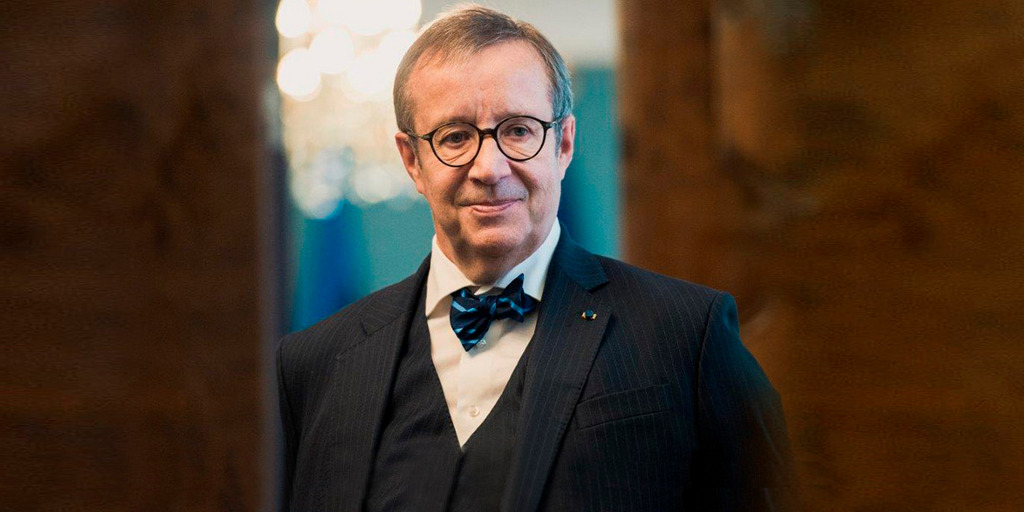carsten.grosse.starmann@bertelsmann-stiftung.de
+49(5241)81-81228

Jelena Rudi Photography
Toomas Hendrik Ilves receives the Reinhard Mohn Prize 2017
This year's Reinhard Mohn Prize "Smart Country: Connected. Intelligent. Digital." will go to Toomas Hendrik Ilves, the former President of Estonia. We award him the prize in honor of his pioneering work on the promotion of digitalization in government, education and public services. Ilves will be awarded the prize worth €200,000 at a ceremony in Gütersloh on June 29.
During his ten-year term of office from 2006 to 2016, Toomas Hendrik Ilves made digital transformation in Estonia a presidential responsibility, pursuing his course consistently and prudently. Estonia is now considered an exemplary digital nation.
Ilves has been a driving force for political change, contributing greatly to the success of Estonia's exceptional digitalization process. It is one of the reasons we award him the prize. Most notable was his contribution to successfully concentrating and bundling the digitalization efforts of the Estonian ministries into a coherent national strategy. Ilves instigated fast internet access and mobile broadband for all; the development of e-skills particularly among children and young adults; and the Estonian population's universally open and positive attitude towards digital technologies.
"Estonia is an exemplary model of what digitalization in Germany could look like in the future."
Brigitte Mohn, Member of the Bertelsmann Stiftung's Executive Board
Personal visits to public authorities are the absolute exception for Estonians. Since 2002, Estonian citizens have been able to process nearly all official transactions with their electronic ID, which includes a digital signature. In 2005, Estonia was the first country to enable its citizens to cast an electronic vote at nationwide elections. Even foreigners can apply for a virtual ID, allowing them to set up businesses, fill in their tax returns and carry out bank transactions.
In 1995, while he was the Estonian Ambassador to the USA, Toomas Hendrik Ilves initiated a groundbreaking project for the promotion of e-skills in his native country. Ilves is regarded as the father of the "Tiger Leap Program", which was the stepping stone for a series of large-scale digital projects aimed at developing the internet as a standard medium in all areas of society. Young people were the first to benefit from the "Tiger Leap Program": Schools were connected to the internet, issued with the necessary hardware and software, and teachers received appropriate training. The second stage of the process was to establish e-learning as a daily fixture in the timetable at Estonian schools. The program was extended to include universities, and a national online learning platform, which is available to every pupil, parent and teacher.
"Toomas Hendrik Ilves introduced digitalization to schools and classrooms ten years before the invention of the smartphone. He realized just how important the early adoption and acquisition of digital skills were before many others did."
Brigitte Mohn, Member of the Bertelsmann Stiftung's Executive Board
Digital education in the schools enabled Estonians to seize the opportunities digitalization offers as a motor for growth and social change - with a healthy optimism, without reservations, but also without euphoric naivety, Brigitte Mohn emphasizes.
The Bertelsmann Stiftung is also honoring Ilves as a politician who was quick to recognize the possibilities that came with digitalization in the interest of social change and renewal. As a former satellite state under Soviet rule, Estonia also used consistent digitalization in the fight against corruption, promote the development of rural infrastructure and to establish free speech and freedom of opinion. Ilves sees data privacy as a tool rather than a problem, and his concept enables each and every citizen to be the master and controller of his or her own data.
After the end of his presidency in October 2016, Ilves was appointed Visiting Fellow at the Center for International Security and Cooperation (CISAC) at Stanford University. He co-chaired the "Blockchain Future Council" at the World Economic Forum (WEF), and now chairs the WEF's Council on Cybersecurity. During his presidency, Ilves headed the EU Commission's Task Force on eHealth and the EU Commission's Steering Group on Cloud Computing. Along with Kaushik Basu, the former Chief Economist of the World Bank, he co-chaired the editorial advisory board overseeing the World Bank's 2016 "Development Report on Digital Dividends", a major study on the use of digital technology to promote development.
About the Reinhard Mohn Prize
The Reinhard Mohn Prize is awarded in honor of Bertelsmann Stiftung's founder Reinhard Mohn († October, 2009). The prize is awarded every year to exceptional, globally active individuals who have played a key role in creating solutions for social and political issues. In order to identify and select a prize recipient, the Bertelsmann Stiftung conducts a worldwide search for innovative concepts and solutions to sustainability challenges with relevance for Germany. The theme for this year's prize is "Smart Country – Connected. Intelligent. Digital." The award ceremony for the Reinhard Mohn Prize will take place at 11 am on June 29 at Gütersloh Theater.




